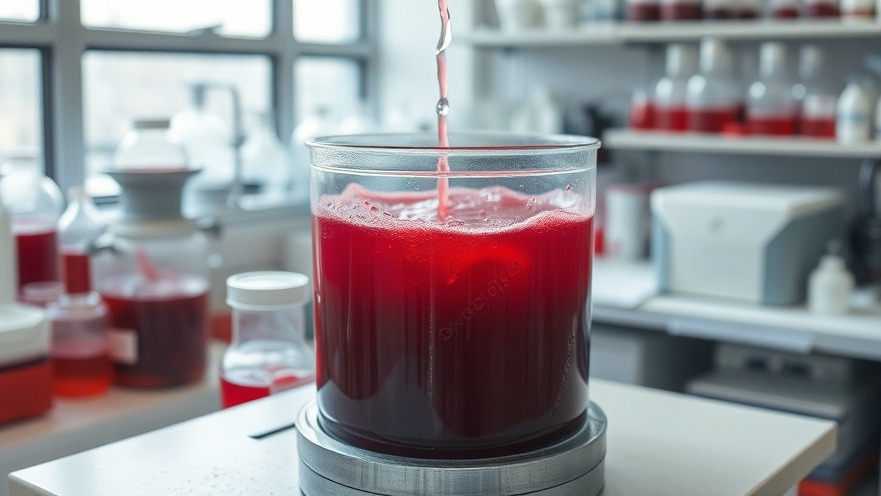
Texas Just Took a Stance Against Lab-Grown Meat: What You Need to Know
In a move that has stirred significant debate, Texas lawmakers enacted a ban on the sale of lab-grown meat products, putting the state's agricultural and culinary future under scrutiny. As a locality known for its rich ranching and grilling traditions, Texas finds itself at the crossroads of innovation and tradition. This contentious decision was made despite the fact that lab-grown meat is not currently being sold in the state, raising questions about the motivations behind the ban.
The Push for Lab-Grown Meat: A National Movement
Across the United States, the dialogue surrounding lab-grown meat has gained momentum. Proponents tout its potential for sustainability, resource conservation, and reducing carbon footprints associated with conventional livestock farming. Reports indicate that lab-grown meat could mitigate food insecurity by providing accessible protein sources without the extensive environmental impacts of traditional farming. However, critics argue that it challenges Texas' deep-rooted cultural ties to beef production, which is vital for both the economy and lifestyle.
Why Now? Understanding the Legislative Environment
Texas lawmakers have expressed concerns about consumer safety and the long-term effects of lab-grown products on health and the state's economy. This legislative action reflects a broader skepticism about food technology and the impact of biotech innovations. With the elections approaching in 2025, political leaders are also considering their constituencies' cultural values, seeing the ban as a means to retain authenticity in food production practices distinctive to Texas.
Economic Implications of the Ban
One cannot overlook the economic ramifications surrounding the issue. Texas boasts a robust economy primarily fueled by agriculture and livestock. The lab-grown meat industry represents an emerging market that has the potential to bring jobs and investments into the state. While some fear the emergence of lab-grown meat could threaten traditional ranching, others argue it offers an opportunity for Texas to remain relevant in an increasingly health-conscious world. As this controversy unfolds, local farmers and consumers are left grappling with the implications.
Cultural Identity and Food: The Texans’ Perspective
Food is not merely sustenance; it embodies identity. Texans pride themselves on their barbecue culture and the strong emphasis placed on locally sourced and raised meats. A significant concern among the public is whether lab-grown options can ever replicate the flavor, culture, and experience of traditional grilling. In response, many ranchers and culinary experts have advocated for continued support of conventional meat production, asserting it is a representation of Texas values.
Future Possibilities: Could the Ban Be Revisited?
With increasing attention to food technology's role in addressing sustainability challenges, questions remain whether the ban will be revisited in the future. Experts suggest that as consumer preferences shift and technology advances, Texas could find itself reconsidering its stance on lab-grown meat. The balance between innovation in food production practices and agricultural heritage will likely drive ongoing debates.
What Does This Mean for Texas Residents?
For Texans, this ban signals a significant moment in state politics and cultural identity. It reflects broader tensions between tradition and innovation that characterize much of current social discourse. While the law may seem protective, it also raises questions about the freedom of choice in dietary options. As the conversation continues, your voice as a consumer matters; understanding these dynamics can lead to informed decisions regarding local food sources.
Conclusion: Engage and Stay Informed
The conversation surrounding lab-grown meat is far from over, especially in Texas, where agriculture plays a pivotal role in shaping local and state identities. Learn more about how these changes could affect you as a consumer and become actively engaged. As we navigate a changing food landscape, staying informed and voicing your opinions in local forums and your community can help shape the future of food in Texas.
 Add Element
Add Element  Add Row
Add Row 



Write A Comment